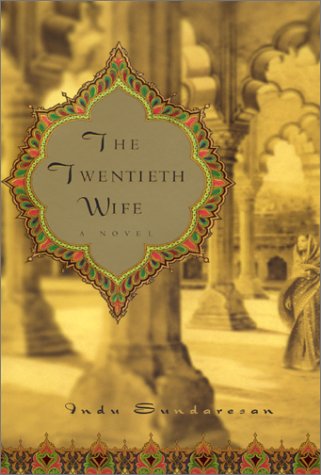The Twentieth Wife
In Mughal India, even the most powerful emperor always had one deadly enemy: his own son. In the late 1500s, the great Akbar rules while his son Salim impatiently waits to grasp the reins of empire. And as much as Prince Salim desires power, a girl named Mehrunnisa desires him.
Mehrunnisa’s life begins in drama: she’s born by the roadside and abandoned there by her desperate, impoverished parents. But as so often happens in her life, a benevolent fate steps in; the infant is saved. Raised in Akbar’s court, the bright and beautiful Mehrunnisa becomes the protégée of Ruqayya, Akbar’s chief queen. Prince Salim ignites her heart, but politics decree her marriage to Ali Quli, a soldier twice her age. Salim seems an impossible dream, especially when Akbar dies and the prince mounts the throne as the emperor Jahangir (World Grasper).
Helpless, Mehrunnisa watches history repeat itself; Jahangir’s son Prince Khusrau rebels and Mehrunnisa’s husband plots against the new emperor. When Ali Quli is killed, Mehrunnisa is free at last and schemes to come to Jahangir’s notice. And when she does, love triumphs, and the thirty-four-year-old widow becomes Jahangir’s wife at last–Nur Jahan (Light of the World).
Overshadowed in popular imagination by her niece Mumtaz Mahal, the dynamic and politically active Nur Jahan was a brilliant figure in seventeenth-century India. Her tumultuous life is an engrossing story. Unfortunately, The Twentieth Wife is less than enthralling, for although its subjects are fascinating people, its setting is exotic, and momentous historical events shape its plot, the book is rather prosaic and colorless. However, it covers a sadly under-used historical period and will appeal to those interested in Indian history.










